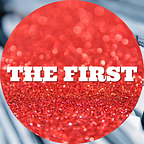Chasing the “Idiot Ball”
The culture war is a product of our time. But do news organizations need to chase the idiot ball?
Jon Rogers, a television and film screenwriter, explained on Twitter the concept of the “idiot ball.”
This is a term used to describe when one character, in order to make the show work, has to behave, uncharacteristically, like a complete idiot. It is usually a different character each week.
Just as the hero of an action film will don “plot armor” and survive the most ridiculous fights and falls because the plot demands it, the character toting around the idiot ball is necessary for the plot, often a comedy, to act as the driving force for the action of the episode or film.
Rogers uses this label to describe the “perpetual outrage machine” that some conservatives use to whip up their base. What’s the idiot ball this week?
Dr. Seuss.
If you only listened to the noise, you might believe that Seuss was “cancelled” by liberals. Liberals take the bait and add to the noise. Yes, some of his books were racist. Cancel him!
Let’s take a breath and step back from this particular battle in the culture war.
Part of the job of journalism, and the explicit task of some outlets like Vox, is to explain the news. In this context, news is “a report of recent events.” Something has happened, now it’s our job as journalists to not only tell the reader what happened but to explain it.
In the case of the racist Seuss books, lost behind the juicy headlines that drove traffic to news sites and obscured by incendiary post after post on Twitter and Facebook was something quite simple. The estate which manages the writings of Theodor Geisel, Dr. Seuss Enterprises, announced they were pulling the books on moral grounds:
We are committed to action. To that end, Dr. Seuss Enterprises, working with a panel of experts, including educators, reviewed our catalog of titles and made the decision last year to cease publication and licensing of the following titles: And to Think That I Saw It on Mulberry Street, If I Ran the Zoo, McElligot’s Pool, On Beyond Zebra!, Scrambled Eggs Super!, and The Cat’s Quizzer. These books portray people in ways that are hurtful and wrong.
The AP ran this headline: 6 Dr. Seuss books won’t be published for racist images
The Washington Post’s business section went with: Some Dr. Seuss books with racist imagery will go out of print
Even Fox News went with the largely similar: 6 Dr. Seuss books to stop being published because of racist imagery
So where’s the problem? If news organizations on the left, right and center all are running nearly similar headlines with fairly similar stories, based in part on the AP story, what’s at issue here?
Serving our readers
I would argue that leaning too heavily into the culture war angle of this story simply confirms with our readers, whatever their political persuasion, that our news organization is interested in sensationalism and emotion over the facts of the story.
Let’s start with the headline. With the simple addition of who is making the decision, we’re giving the reader a fuller picture of the events.
AP: 54 characters
Washington Post: 61 characters
Fox News: 67
My offering for a better headline: Dr. Seuss Enterprises ceasing publication of 6 books due to racist imagery
At 74 characters this headline isn’t substantially longer than the others, but it does have a higher information quotient. Simpler phrasing could get it down to 59 (“Dr. Seuss Enterprises pulling 6 books due to racist imagery”), but this makes it sound like they’re going to store shelves and libraries and taking back the books.
But you know which major national news organization had a good headline? NPR and at just 70 characters it tells a more complete story:
Dr. Seuss Enterprises Will Shelve 6 Books, Citing ‘Hurtful’ Portrayals
Bottom Line
Filter out the noise and give the audience the facts of the events.
